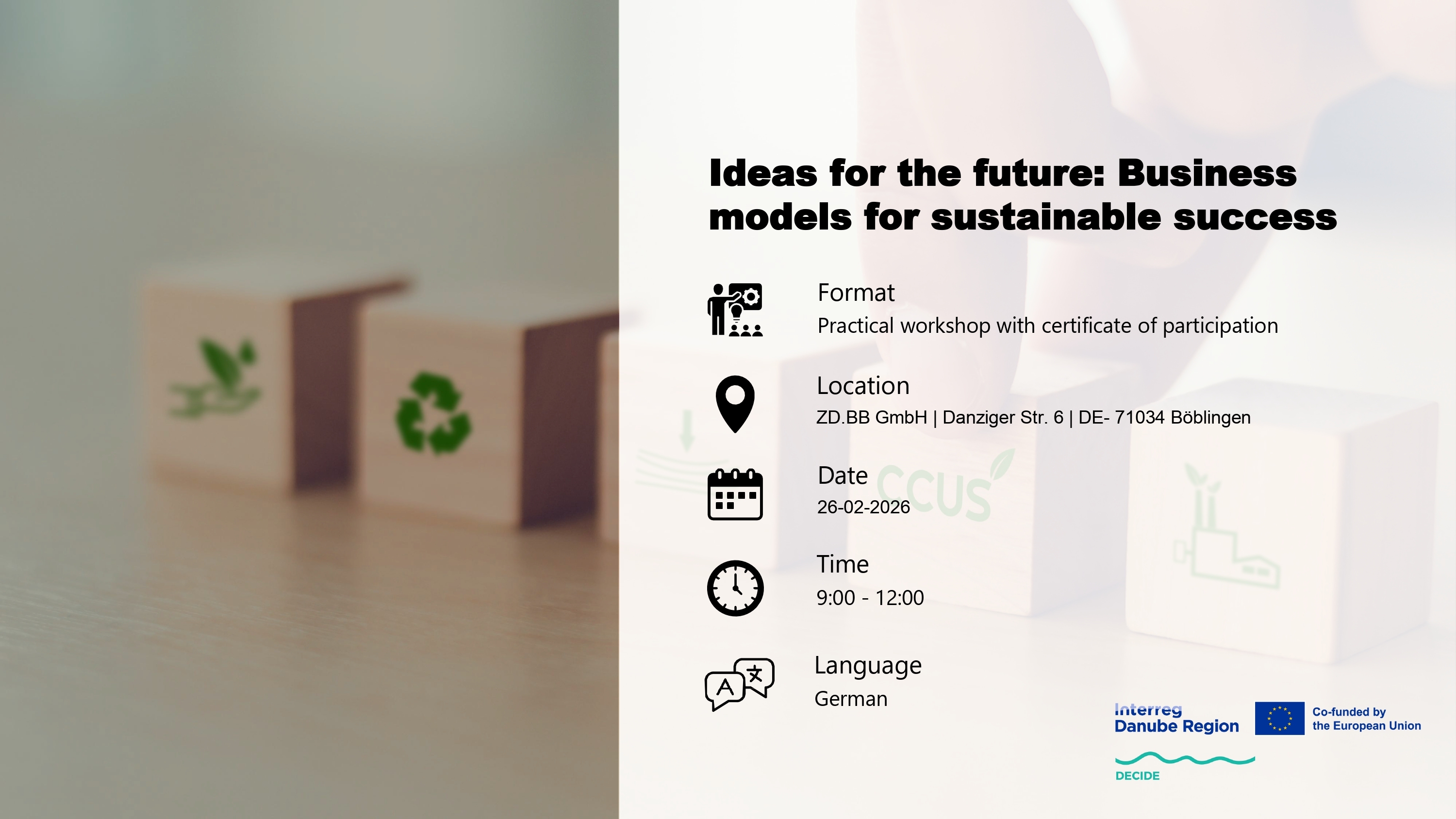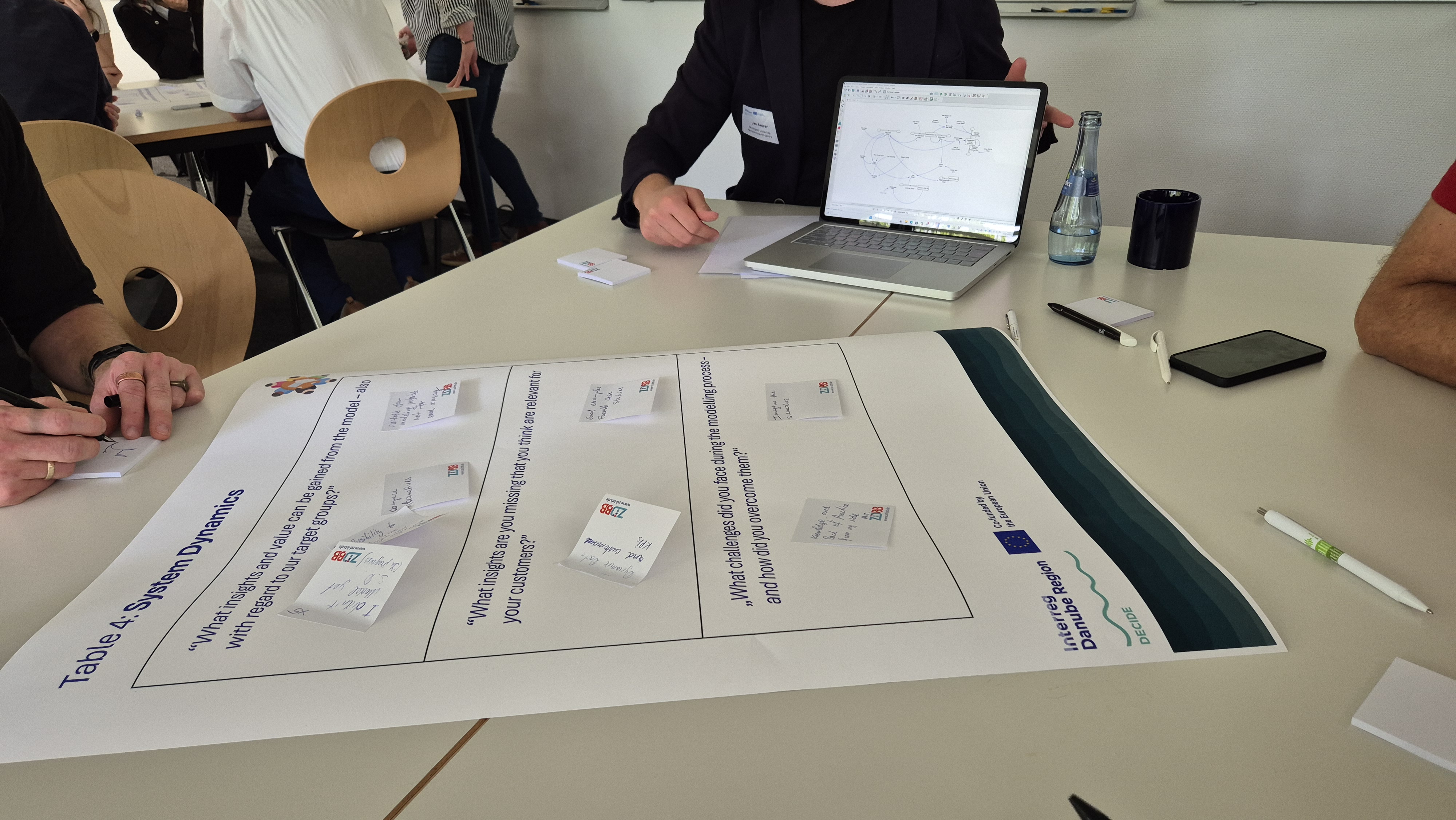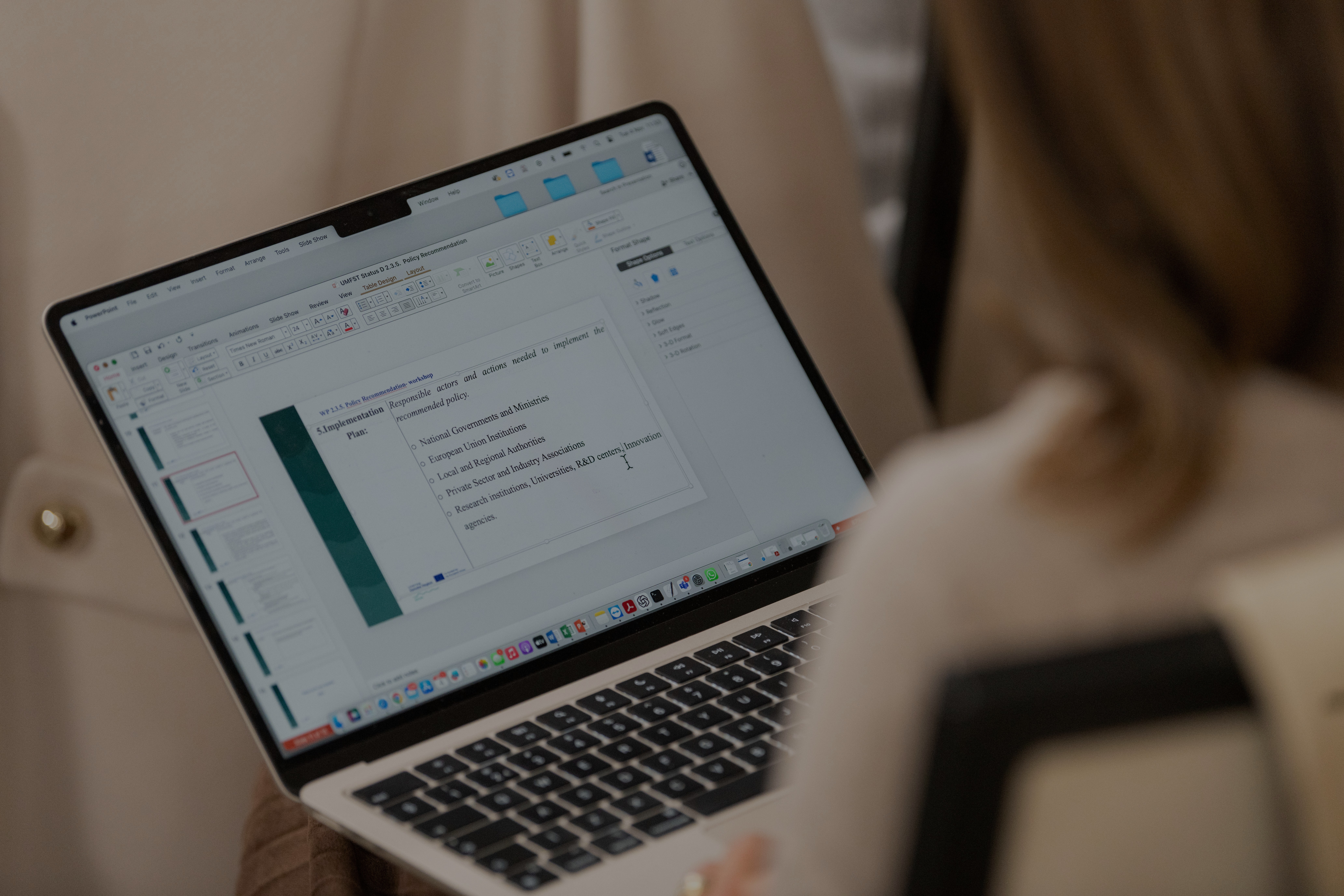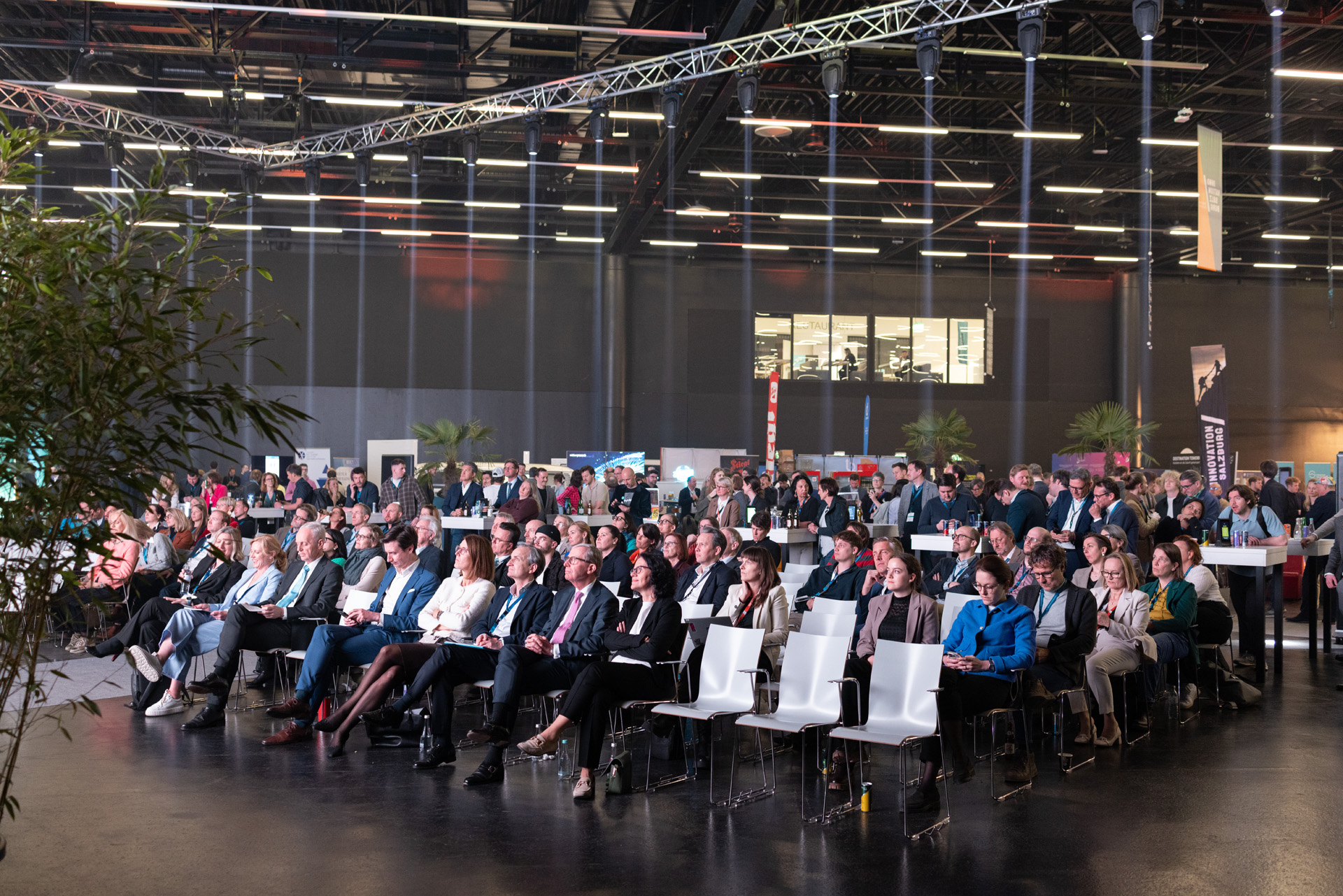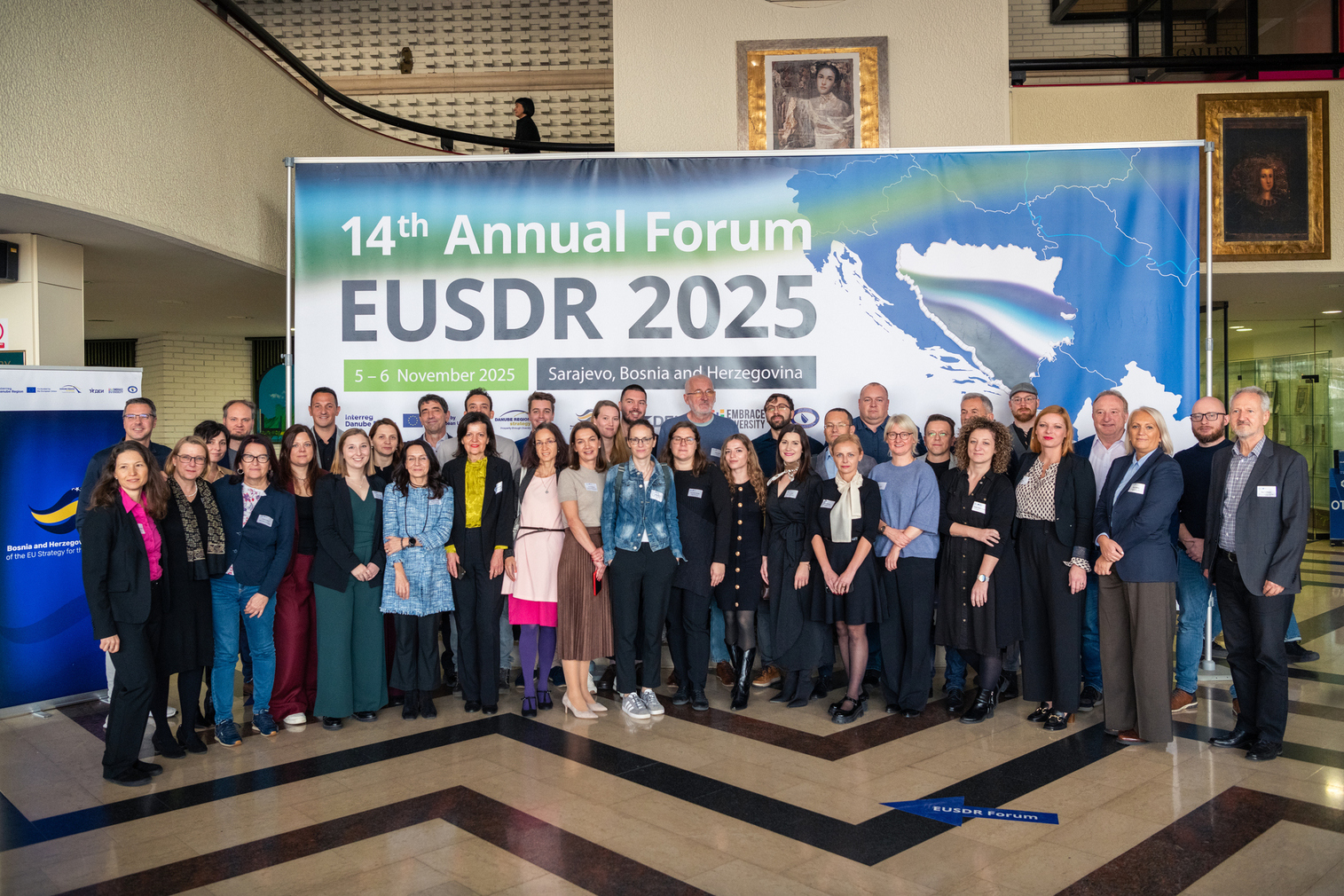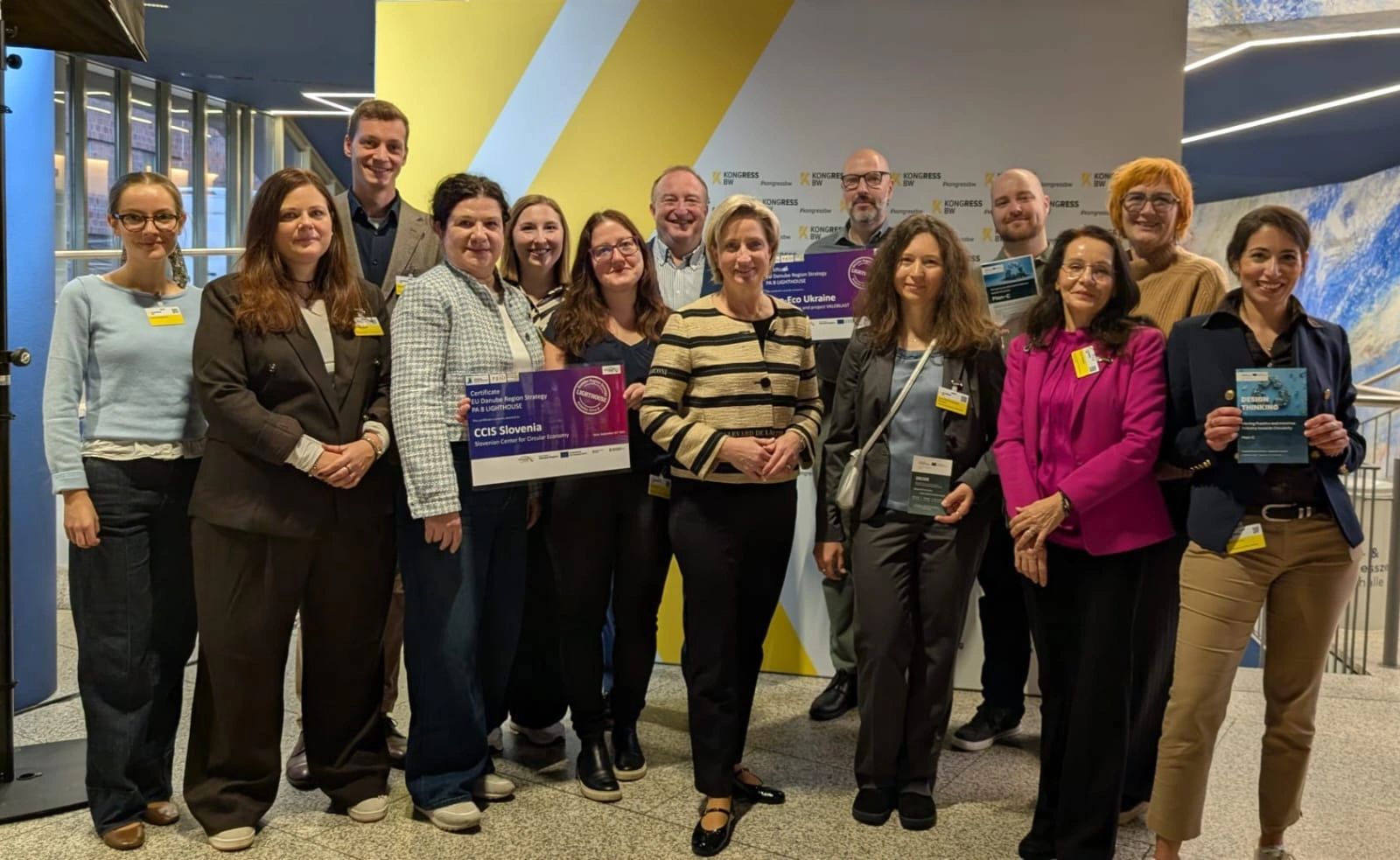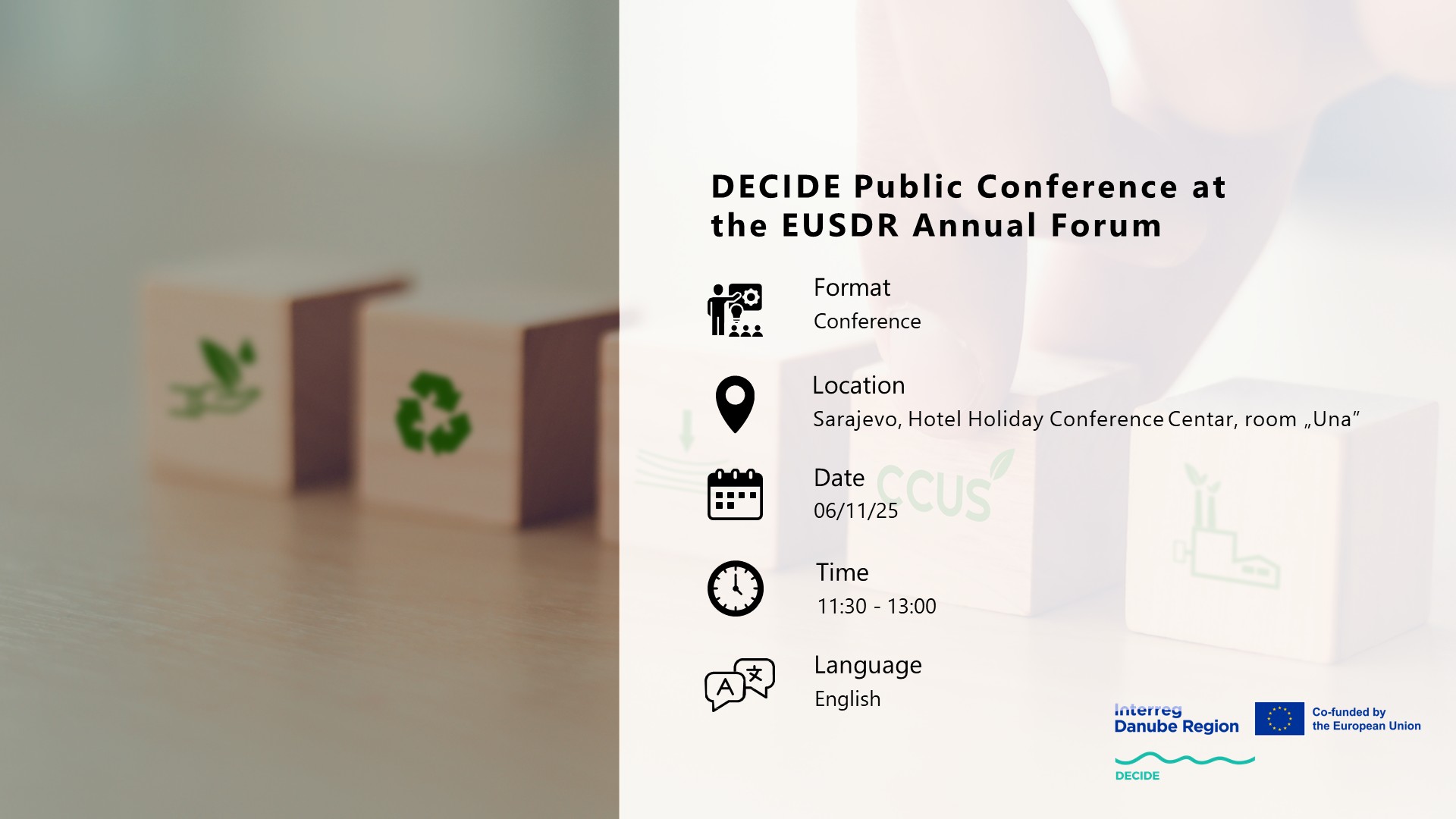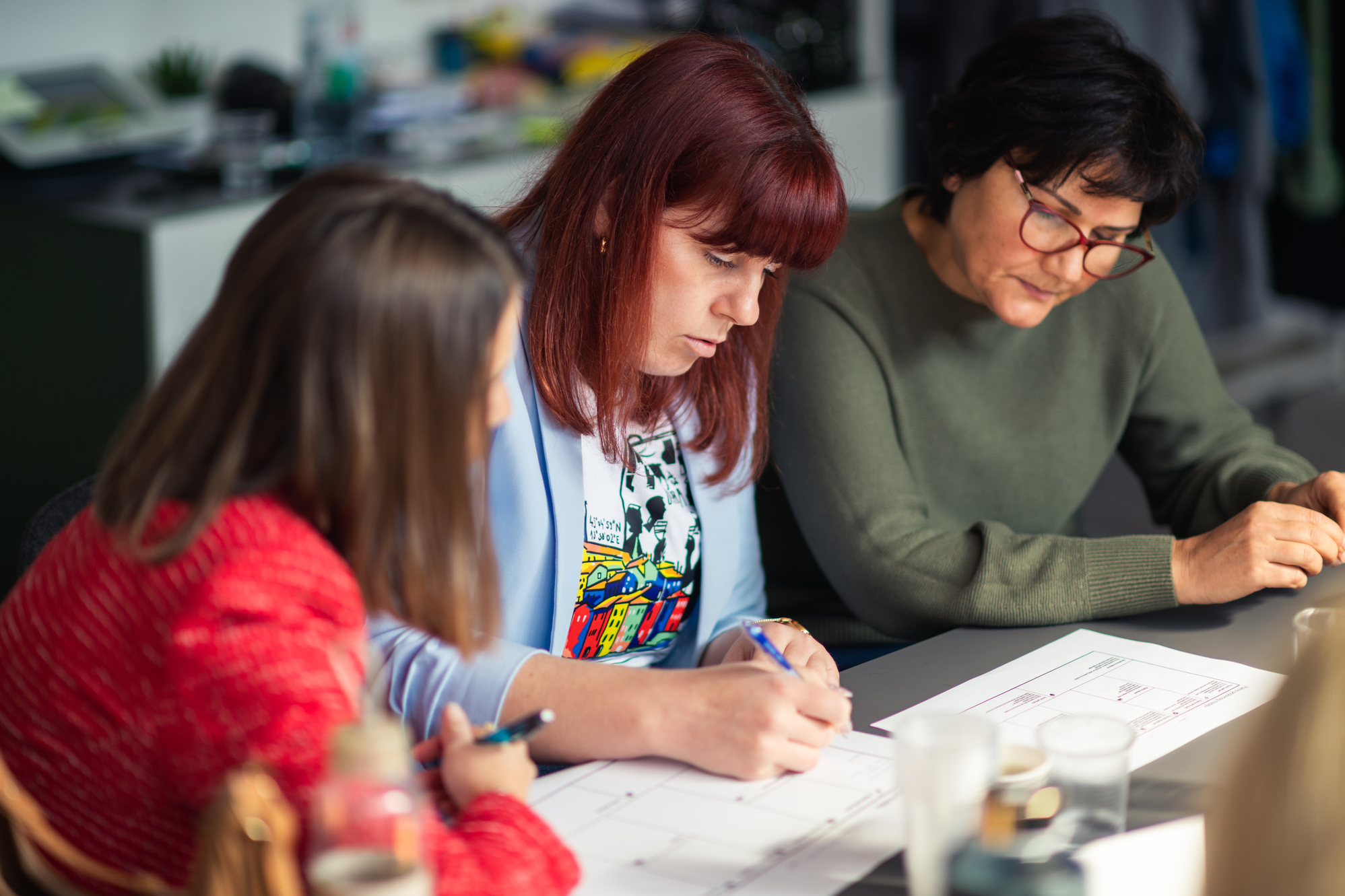DECIDE
DECIDE - Digital Services for Circular Economy - a Toolbox for Regional Developers & SME
As a certified flagship project of the EU Strategy for the Danube Region, DECIDE empowers SMEs, start-ups and economic development organisations to embrace the circular economy. The project delivers practical methods and tools to foster innovative business models, offering cross-border knowledge exchange and hands-on support through pilot projects. With targeted training and actionable policy recommendations, DECIDE drives sustainable growth, helping businesses across the Danube Region lead the way in circular economy practices
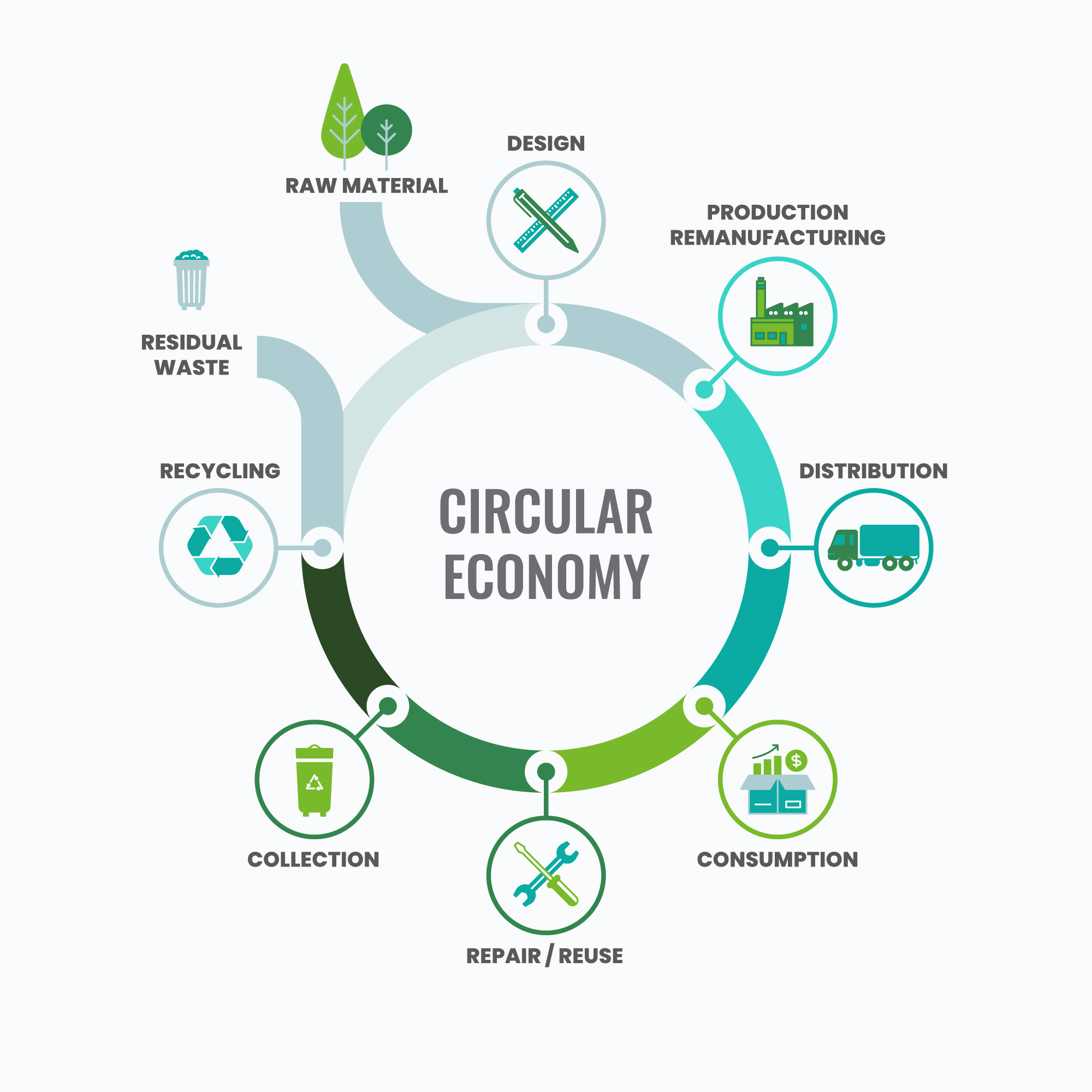
Image source: Open licence
In response to many challenges that the future holds, the EU responds with respective programs and objectives, like Agenda 30‘s Sustainable Development Goals, Fit for 55 - the EU’s plan for a green transition and especially the Circular Economy Action Plan. The latter sets objectives which also contribute to the goal of the other programs: Make sustainable products the norm in the EU; focus on the sectors that use most resources and where the potential for circularity is high, including batteries and vehicles, packaging, textiles, plastics, ICT, construction and buildings, food, water and nutrients; ensure less waste; make circularity work for people, regions and cities.
With regard to the EU response, it is clear that Circular Economy Business Models (CEBM) are given a special role in addressing current and future challenges at a transnational level and that they are significant for achieving the set objectives. However, the development and implementation of CEBM meets common obstacles in the DR such as local regulations contrary to the circular concept, lack of infrastructure for waste treatment, lack of recycling technology and especially a lack of adequately planned business models.
This is where the project aims to intervene by providing methods and tools to SMEs, Startups, Economic Developers for the development of successful CEBM by modelling existing best practice CEBM (in batteries, food, textile, packaging, smart city), in-depth simulations on ecological and social dimensions and continuous monitoring of the CEBM's success - protected by blockchain technology. Accordingly, the implementation of practical pilots and targeted qualification measures will ensure a thorough understanding of CE value chains and allow for knowledge transfer from the existing best practice CEBM across borders and sectors within the DR, turning the supposed weakness of geographical segmentation into a new and unique innovation accelerator.
News & Events
Read the most recent updates and explore the upcoming events.
Project overview
Need any help? Contact us!

Severine Dommer
Project manager

